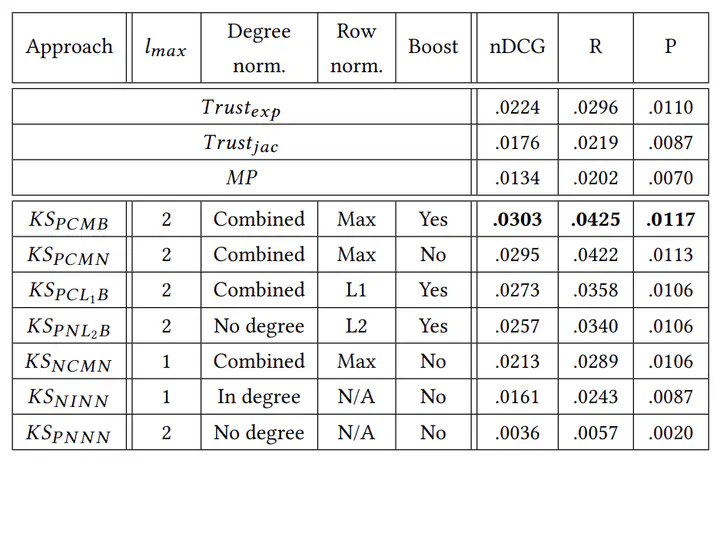 Comparison of recommendation algorithms using strong ties (direct trust connections) vs. weak ties (indirect connections), showing that incorporating weak ties (KSPCMB) improves recommendation accuracy over baseline methods.
Comparison of recommendation algorithms using strong ties (direct trust connections) vs. weak ties (indirect connections), showing that incorporating weak ties (KSPCMB) improves recommendation accuracy over baseline methods.
Abstract
User-based Collaborative Filtering (CF) is one of the most popular approaches to create recommender systems. CF, however, suffers from data sparsity and the cold-start problem since users often rate only a small fraction of available items. One solution is to incorporate additional information into the recommendation process such as explicit trust scores that are assigned by users to others or implicit trust relationships that result from social connections between users. Such relationships typically form a very sparse trust network, which can be utilized to generate recommendations for users based on people they trust. In our work, we explore the use of regular equivalence applied to a trust network to generate a similarity matrix that is used for selecting k-nearest neighbors used for item recommendation. Two vertices in a network are regularly equivalent if their neighbors are themselves equivalent and by using the iterative approach of calculating regular equivalence, we can study the impact of strong and weak ties on item recommendation. We evaluate our approach on cold-start users on a dataset crawled from Epinions and find that by using weak ties in addition to strong ties, we can improve the performance of a trust-based recommender in terms of recommendation accuracy.
- Presented as a Spotlight Talk at the “European Symposium Series on Societal Challenges in Computational Social Science - Polarization and Radicalization”*